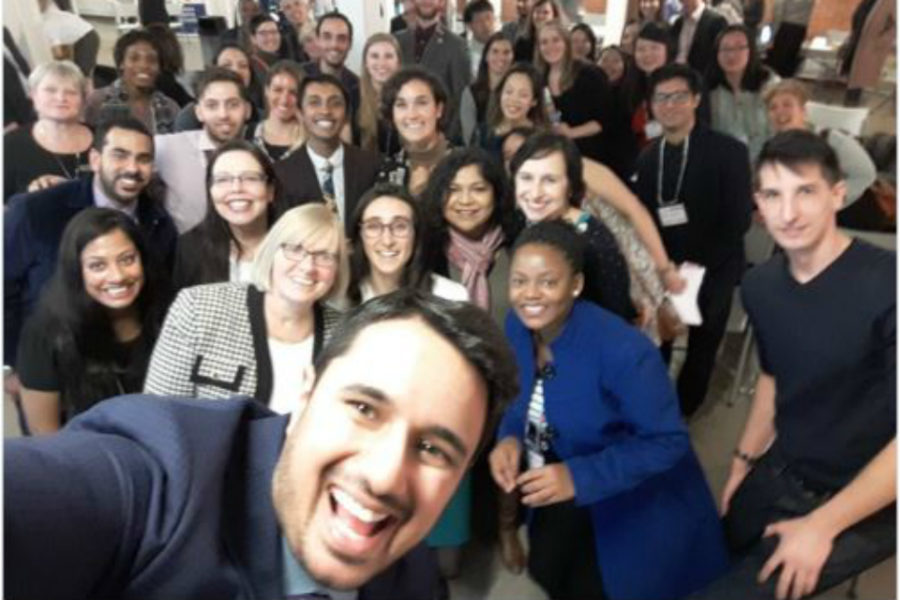These days it seems every day is marked by a hashtag of some sort.
Just last week we marked International Day of Women and Girls in Science (#WomeninScience) and on 6 February we marked the 100th anniversary of the British ‘Representation of People Act 1918’ (#Vote100) which first gave (some) women the right to vote. On 8 March we will celebrate International Women’s Day (#IWD2018) and on 12 March it is #CommonwealthDay. (We also marked #InternationalScotchDay on 8 February but I’ll have to try and weave that into the narrative later.)
It is easy to be blasé about these special days but when you scrape below the surface each reveals stories of heroism, sacrifice, joy and despair.
This led me to think about the parallels between the involvement of women in politics, the involvement of women in science and how a country develops and flourishes. Politics and science both play defining roles in a country’s economic development. And politics and science are more likely to thrive if the potential of not just 50% but 100% of the population is fully unlocked.
The world needs science and science needs women. The world also needs politics delivering good governance and politics is more likely to deliver good governance if it is fully representative and includes the participation of women. And countries benefit from groupings like the Commonwealth which encourage the sharing of ideas and scientific collaboration, and the mutual reinforcing of common values that support good governance.
I celebrated all these things by sponsoring an event in Calgary with the local chapter of Engineers Without Borders (EWB), a wonderful organisation which inspires and supports people to respond to global challenges using science, technology and engineering. EWB Canada helps organise the Kumvana Fellowship. Kumvana means “unite so we may discuss and understand.” In this spirit the programme identifies young leaders from Africa and provides leadership training through an online learning course, an African retreat, and a 1-month intensive Canadian experience.
The ‘Kumvana Gala’ in Calgary brought together 19 local organisations and companies, which all have a role in empowerment and opportunity, and provided a platform for one of the Kumvana Fellows to introduce herself.
Such a great @ewb #Kumvana Gala last night. The room was positively humming with the dynamism of so many #systemschange agents! #GenderEquality #STEM #womenintech #Commonwealth pic.twitter.com/0yDh5nVMCe
— Caroline Saunders (@CSaundersUK) February 9, 2018
Gladys Muthara, founder of the Teen Action Programme in Kenya, told her story of growing up in rural Kenya, of how girls have to push so much harder to get to secondary school and access higher education. She graphically described the way the system is stacked against women, such as teenage girls being unable to attend school because they could not afford sanitary wear. And if they can get a job, there is a constant problem of sexual harassment in the workplace.
These things have been so much in the headlines here with the #MeToo campaign but we need to do much more to expose what this means for women in developing countries who have a more profound perspective on inequality and disempowerment.
I introduced Gladys to a good friend of mine in Calgary, Audrey Mascarenhas, CEO of Questor Technologies. Audrey grew up in Kenya but came to Canada as a teenager with her family. She studied engineering and became a pioneer for women in the Canadian oil and gas industry. As the only woman working in remote oil fields she was relentlessly criticised by her male colleagues but won them over and moved into a position of leadership before starting her own successful international company. Audrey’s success as a female engineer and a female entrepreneur is inspirational.
Gladys and Audrey are wonderful role models who epitomise why we need to celebrate women and science and progress and collaboration. As London hosts the Commonwealth Heads of Government Meeting (#CHOGM2018) in April this year (no doubt with great Scotch Whisky available to guests – I got in the Scotch!), associated meetings like the Commonwealth Women’s Forum, the Commonwealth Youth Forum and the Commonwealth Business Forum (a Davos-style meeting of 800 senior business people from up to 53 countries) will bring opportunities for more information exchange, more opportunities for action, and of course, more hashtags.

